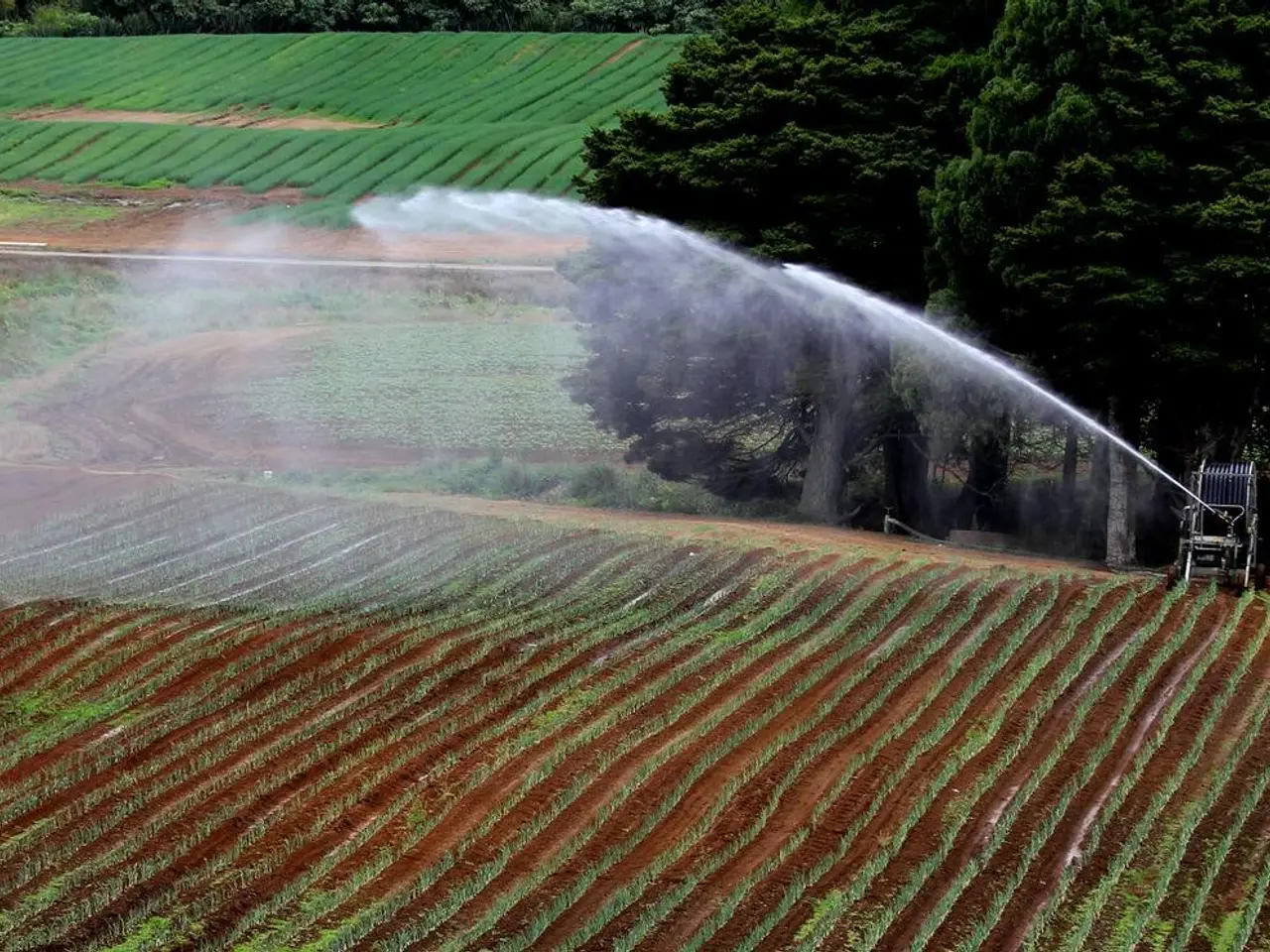Advantages of Combined Agricultural Methods
In the bustling city of Chennai, a revolutionary approach to agriculture is taking shape. Integrated Farming Systems (IFS) are transforming the landscape, offering a multi-benefit model that strengthens livelihoods, promotes sustainable agriculture, improves nutrition, and empowers marginalized groups.
The system, which combines diverse agricultural practices such as crop production, animal care, fisheries, and forestry, is proving to be a game-changer. By integrating these components, IFS enhances nutritional security by producing a variety of foods locally, improving dietary diversity, and health outcomes for the community.
One of the key advantages of IFS is its promotion of more resilient and self-sufficient food systems. By integrating crop production with livestock, aquaculture, and organic waste recycling, IFS facilitates efficient use of resources such as water and soil, conserves biodiversity, and supports continuous year-round production. This not only strengthens local food availability but also reduces dependency on external inputs.
Economically, IFS provides farmers with a diverse income stream through multiple enterprises such as poultry, beekeeping, vegetable seeds, and vermicomposting. This diversification increases annual income substantially and reduces financial risks. The system also encourages training and technical support, further improving farmers' productivity and market competitiveness.
IFS also empowers women and youth by involving them in training and implementation, building their skills and employment opportunities. By decentralizing production and integrating small-scale enterprises, it provides avenues for women and young people to participate meaningfully in agriculture, decision-making, and income generation.
In terms of food security, the diversification and resource-efficient nature of IFS improve the stability and sustainability of food production. IFS emphasizes reduced dependence on external chemical inputs by adopting natural farming techniques, ensuring affordable and steady crop yields. Its water-saving technologies also enhance resilience to climate variability, contributing to stable food supplies.
Environmentally, IFS promotes sustainability by establishing a closed-loop system, where one component's waste can be used as a resource for another. This reduces the need for chemical fertilizers and lowers water pollution, improves soil quality, and enhances air quality.
In essence, integrated farming systems in Chennai act as a beacon for the future of agriculture, offering a path towards a more egalitarian and sustainable future that feeds both the community's spirit and its physical needs. The peri-urban regions and growing consciousness of sustainable living in Chennai make it an ideal location for implementing integrated agricultural systems.
The potential of integrated agricultural systems in Chennai is vast, with the possibility of being greatly aided by programs, agricultural cooperatives, and government subsidies. The city's organic integrated farming shows promise in meeting the rising demand for wholesome, locally grown food. As a case study for the benefits of IFS, Chennai presents a compelling argument for the widespread adoption of this sustainable agricultural practice.
Read also:
- Setting Up and Expanding Operations at a Soil Blending Facility
- Surveying the Scene: Legality, Drones, and American Anti-Terror Strategy
- Regional University's healthcare system strengthened through collaborative partnership with Chancellor Dr Fiona Hill
- Exploring the vanguard of eco-friendly advancements: mycorrhizal partnerships and internal plant organisms








